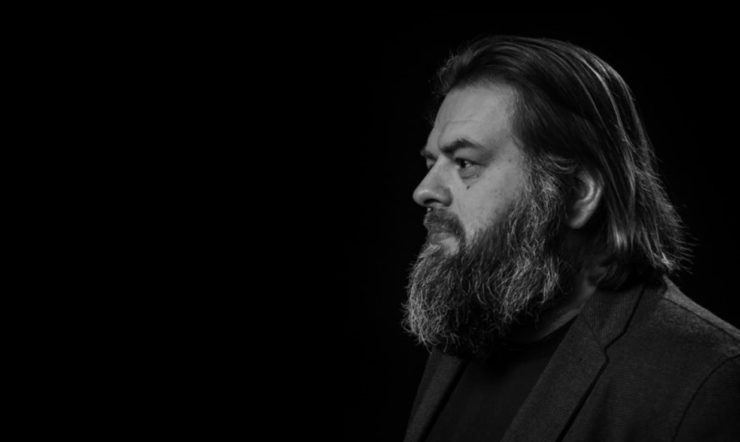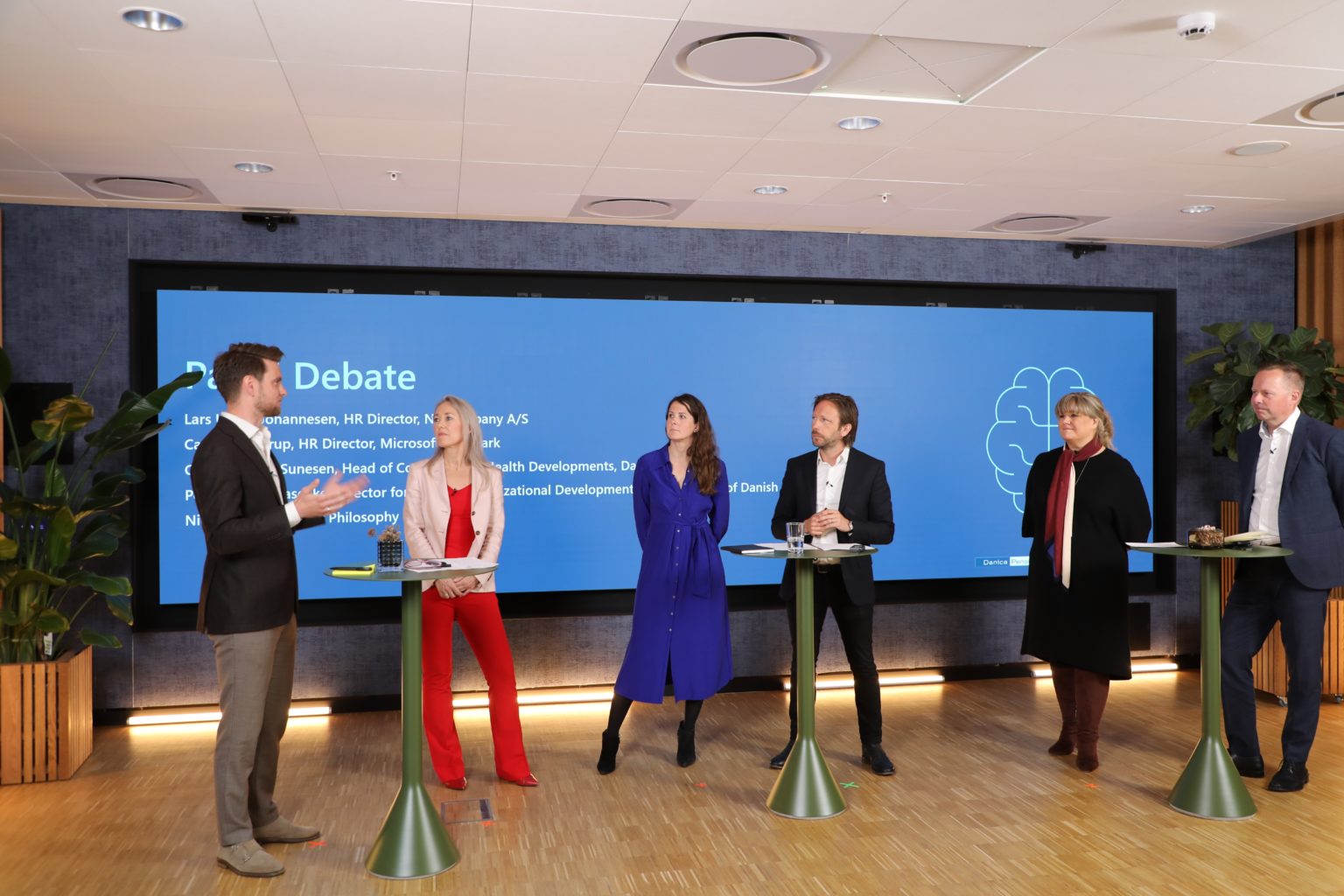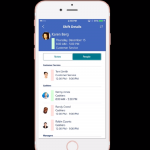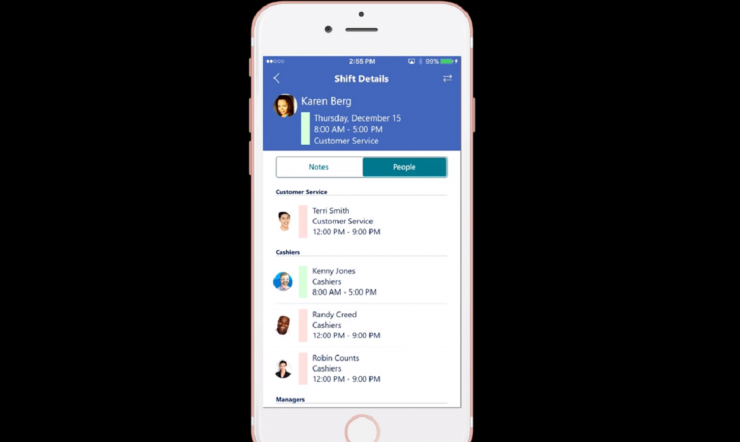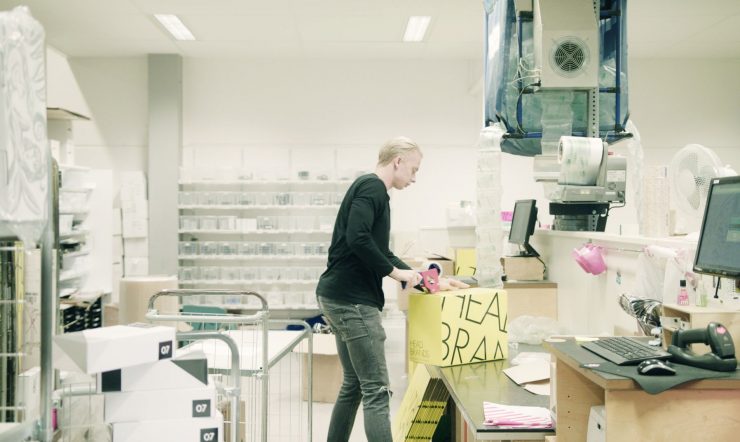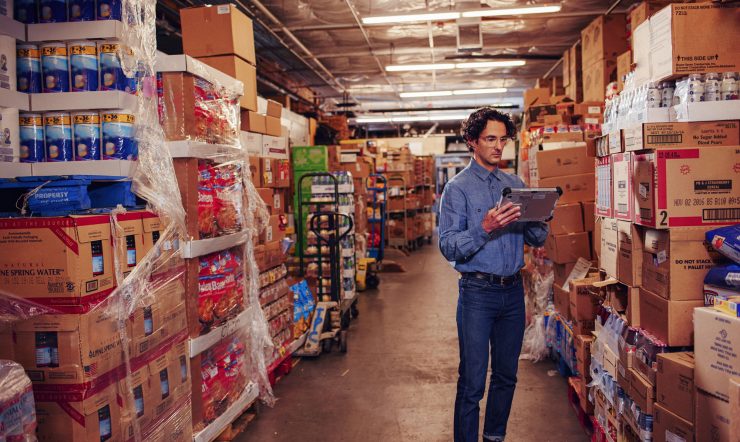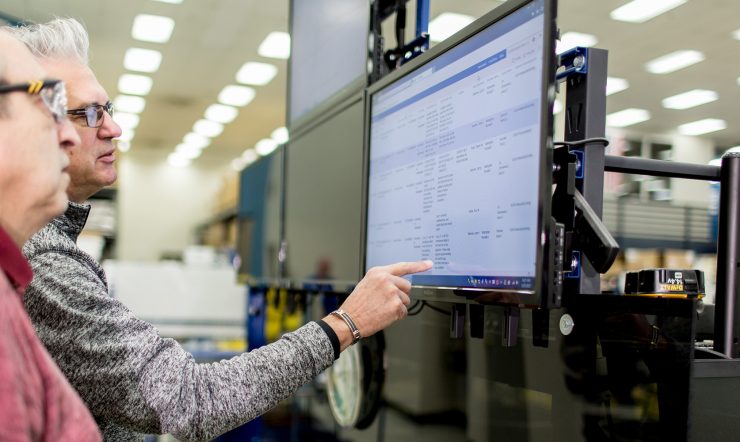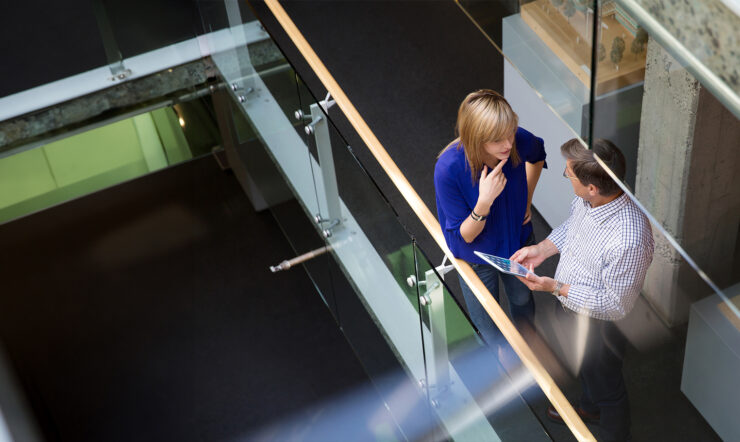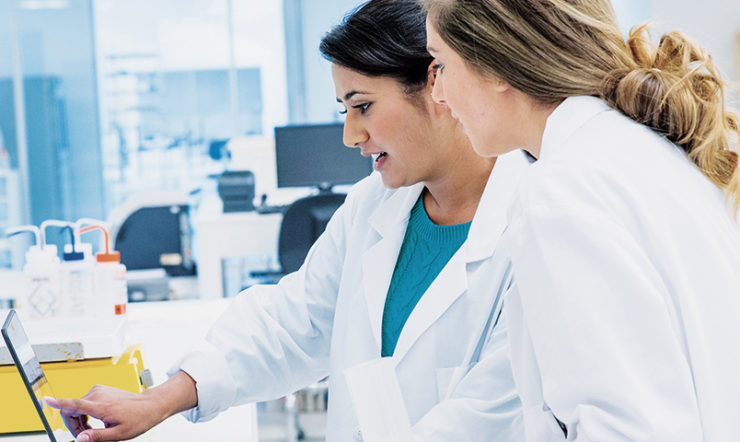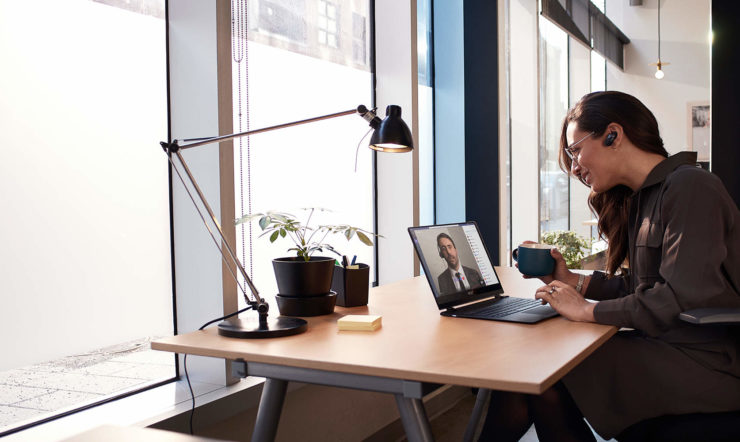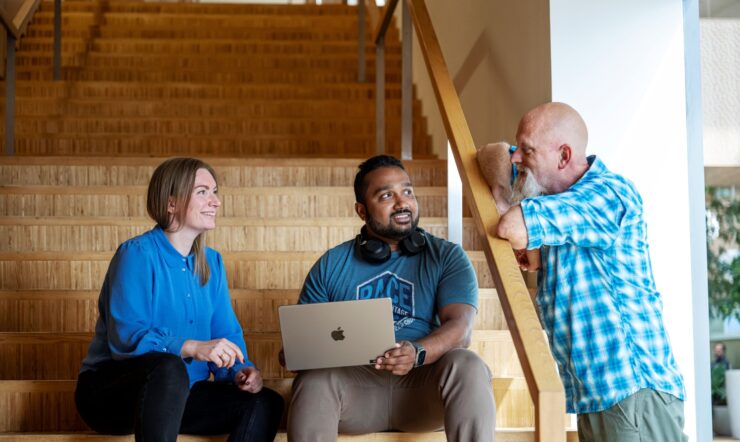Stress and mental overload are not new problems. However, the increase we have seen in work-related stress during the pandemic should worry us. And it is. But how do we take care of ourselves and at the same time utilize all the best the hybrid working environment has to offer? How can technology enable healthier working patterns and what are the new responsibilities of hybrid leaders? Those were the topics of the day when we together with Danica Pension co-hosted the event: Hybrid Health: Unlocking the technological perspective of healthy hybrid work.
More than 150 people joined digitally to be part of the two-hour event that included representatives from some of the largest and best-known Danish organizations. Their role was not to provide solid answers but to share experiences, insights, and recommendations on a topic that many organizations are struggling with.
The hosts of the day were Camilla Hillerup, HR Director at Microsoft Denmark, and Andreas Stahl, Head of Modern Work & Security Enterprise Sale in Microsoft Denmark and they presented interesting findings from the recent Microsoft Work Trend Index.
“We have seen an increase of 252% in weekly time spent on meetings for the average Teams User since February 2020. In the same period, we’ve seen an increase of 32% in chat messages. When you combine these numbers with the fact that 53% of employees are more likely to prioritize health and wellbeing over work compared to before the pandemic, it is clear, that we need to discuss how healthy hybrid work looks like”, Camilla Hillerup initiates the discussion. She is backed by the CEO of Danica Pension, Søren Lockwood:
“Hybrid work comes with a lot of advantages, that we simply must utilize. At the same time, we see some of the downsides. Lack of mental and physical breaks and employees who are not connected with each other and their leaders. This can have long-term consequences affecting both the individual and society negatively. However, the new situation post-pandemic has also called for new solutions to nudge us into healthier working behavior. One example is our digital psychological hotline for employees, whom they can contact directly and without asking anyone. So even though it is always better to prevent mental overload, when it occurs, help must be available fast and easy,” Søren Lockwood says.
Threat or possibility?
How does a global corporation employing 49,000 people and with a presence in 148 countries deal with healthy hybrid work? When do expectations vary not only from country to country but from employee to employee? Mille Borchorst, SVP, P&O Business Partnering at Novo Nordisk doesn’t claim that she or Novo Nordisk have found the holy hybrid grail. She asked, “Was the pandemic an opportunity for accelerating new ways of working or a threat? Two years down the line we must say it was both”. Based on learnings from the pandemic, Novo Nordisk introduced four Flex-able beliefs that define how a modern organization can improve and develop healthy ways of working. They are as follows:
- Workplace flexibility should always be considered an option
- We need to meet physically
- It’s a leadership responsibility to agree with employees on the right level of flexibility
- One size doesn’t fit all
We need to feel we belong
Next on the agenda was a panel discussion including Lars Ulslev, Group HR Director at Netcompany, Camilla Thind Sunesen, FVP, Concepts & Health Development, Danica Pension, Nicolai Ellemann Iversen, Chief Philosophy Officer, Voluntas, Pernille Tang Raschke, Deputy Director General, People & Culture, Confederation of Danish Industry and not least Camilla Hillerup, HR director, Microsoft Denmark. The overall focus was to discuss how hybrid work can help address some of the mounting challenges with stress and mental overload facing societies today. “No one can argue with the numbers” moderator of the day, Andreas Stahl initiated. “15% feel stressed often or all the time at work, 32% feel they get no or limited help from their leader when feeling stressed. Stress is the number one reason for lack of job satisfaction,” he continued.
“We have an opportunity now to stop, reflect and redesign the workplace – in terms of structure and leadership – it’s not just about flexibility.” Camilla Thind Sunesen opens the debate. “We see competitors offering 100% remote working options”, Lars Ulslev says “I don’t believe that’s very healthy. We need to feel we belong, and we believe that very strongly in Netcompany. “We’ve put the decision into the hands of our managers and empower and train them to make the right decisions – they are close to their team and can monitor their needs much more precisely”, Lars Ulslev says.
Be concerned about the humanness
“It’s devastating that we have known these stress-related figures for years without being able to properly address them – in fact, we see that they have negatively accelerated”. Nicolai Iversen from Voluntas says and continues: “From my perspective, every leader should be concerned about the humanness of the organization”. Nicolai Iversen refers to a study that Voluntas conducted last year during the lock-down where employees among other things were asked what they wanted from their leader. The response was availability and presence. Not big visions or grand transformations, but the possibility of connecting. “If we look at the leaders we see the paradox because they often spend all day in front of the screen in meetings – being neither present nor available for their teams”, Nicolai says.
At the Confederation of Danish Industry, the dilemmas of Danish businesses can be summed up in three areas that all need attention: “One is the physical space: How do we meet physically and when do we meet? How do the facilities look? Do we need all the office space we have right now?” Pernille Tang Rashcke asks. “The second area is the mental space. How do I work with myself and my mental well-being? That’s also an individual responsibility”, she points out. “The third area is the digital space: How do we use technology to support both the physical and mental space?” she asks.
Lastly, Camilla Hillerup, Microsoft Denmark, was asked about the next concrete action she’s planning on taking to improve mental well-being: “We just changed our annual employee survey to become more of a survey of signals. We’re running it more frequently than before to have more dynamic data and we’re moving from a work/health index to a thriving index based on simple questions. We ask if people feel empowered if they feel energized and whether they feel they have meaningful work”, she concludes.
Keep motivation high
As SVP for People & Culture in the largest Danish bank, Danske Bank, Andreas Juul Sørensen is familiar with the dilemmas and paradoxes facing organizations trying to manage expectations from employees. And he was next to give his keynote. “In Danske Bank, we have defined our workspace based on three elements”, he says: “The first one being about relationships – a network of high-quality conversations and relationships where mutual respect and active listening is focal. The second element that defines our workplace is finding answers to the existing problems or new opportunities. And we are 21,000 people to do the work, so amazing answers can emerge. The third element is our ability to complete tasks – to get stuff done and keep the motivation high”.
The last man on stage was Michael Andersen, leadership philosopher, and organizational advisor. He simply calls it stupid that we always try to categorize hybrid work as either a good or a bad thing. “I want to quote Socrates who said that the only thing I know is that I know nothing. We know some things about hybrid work. But not enough, and there are so many questions we still haven’t looked into yet”, Michael Andersen says urging organizations to be curious and investigate both known and unknown needs to identify what motivates people that they might not even be aware of. Maybe because it’s difficult to talk about. Michael Andersen exemplifies: “That could be unmet needs of being seen, recognized, and heard – that’s not always a conscious need unless addressed specifically, but they can be crucial needs to ensure a healthy working experience. We need to keep asking ourselves these questions and be curious if we truly want to find out what healthy hybrid work looks like.”
Want to know more about hybrid work? Take a look at our Hybrid Talk series here.
Or watch a recap of the event below.
